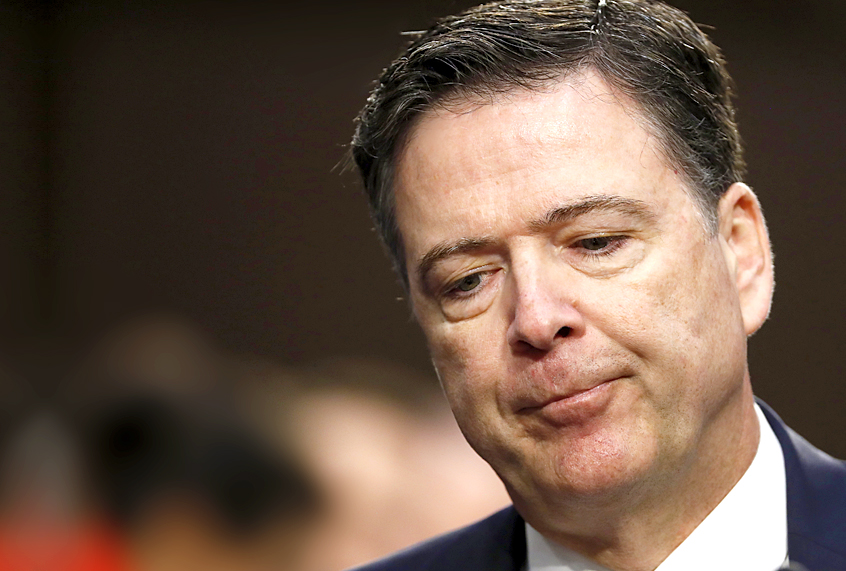James Comey’s interviews and book, “A Higher Loyalty,” have indeed been raising a lot of questions as of late. ABC News released a clip of the much-anticipated interview ABC special with George Stephanopoulos on Saturday—which will air tonight— in which Comey said his belief that Hillary Clinton would win the 2016 presidential election was “a factor” in the email probe that ensued just days before the election.
“Wasn’t the decision to reveal influenced by your assumption that Hillary Clinton was going to win, and your concern that, she wins, this comes out several weeks later and then that’s taken by her opponents as a sign that she’s an illegitimate president?,” Stephanopoulos asked.
“I don’t remember consciously thinking about that, but it must have been because I was operating in a world where Hillary Clinton was going to beat Donald Trump, and so I’m sure that it was a factor,” Comey told Stephanopoulos. “I don’t remember spelling it out, but it had to have been, that she’s going to be elected president and if I hide this from the American people, she’ll be illegitimate the moment she’s elected, the moment this comes out.”
As ABC News notes, this comment is further explained in his book, which is the reason he’s currently on a media tour.
In the excerpt, via ABC, Comey writes:
“Like many others, I was surprised when Donald Trump was elected president. I had assumed from media polling that Hillary Clinton was going to win. I have asked myself many times since if I was influenced by that assumption. I don’t know. Certainly not consciously, but I would be a fool to say it couldn’t have had an impact on me.”
Jennifer Palmieri, former White House Director of Communications and Director of Communications for the Hillary Clinton 2016 presidential campaign, responded to this comment on CNN on April 15.
Video: Here's @jmpalmieri's reaction to Comey saying that his belief Hillary Clinton would win the 2016 election was "a factor" in the email probe… https://t.co/7kpFtYtjZh
— Brian Stelter (@brianstelter) April 15, 2018
“What amazes me about what he said, and what I understand he said in the book, is that he decided to send the letter to the hill because of a political consideration and that political consideration is that he put it upon himself to be worried whether or not the next president of the United States was going to be considered legitimate,” Palmieri said.
“The whole reason the FBI exists independent, inside of the Justice Department, is so decisions do not happen by taking political considerations into account,” she said. “That is the whole reason, and what he did was make a very, very fateful decision because he took political considerations into account and decided how it make look. That’s not his job. And it amazes me because his whole justification for any action was he was always trying to act within the bounds of how the FBI is supposed to operate and that is very clearly outside of the bounds of how the FBI is supposed to operate.”
Remember, Donald Trump fired Comey in May 2017, claiming that he was dismissed over Comey’s handling of the investigation into Hillary Clinton’s emails. However, it has been widely speculated that Comey’s firing was likely due to Trump’s fury over the FBI’s investigation into allegations of Trump’s collusion with Russian agents seeking to undermine democracy in the United States. Comey testified in front of the Senate Intelligence Committee in June 2017, an event that became a must-see TV event, with many people in liberal cities like Washington, D.C. taking the day off work to spectate. In his testimony, Comey alleged Trump tried to get Comey to take a loyalty oath, and also that Trump directed him to drop the FBI’s case against Michael Flynn.
Comey’s interview tonight will likely be yet another popular event—one in which has seemingly left Trump shaking in his proverbial Twitter shoes (as his recent tweets suggest).
Slippery James Comey, a man who always ends up badly and out of whack (he is not smart!), will go down as the WORST FBI Director in history, by far!
— Donald J. Trump (@realDonaldTrump) April 15, 2018


